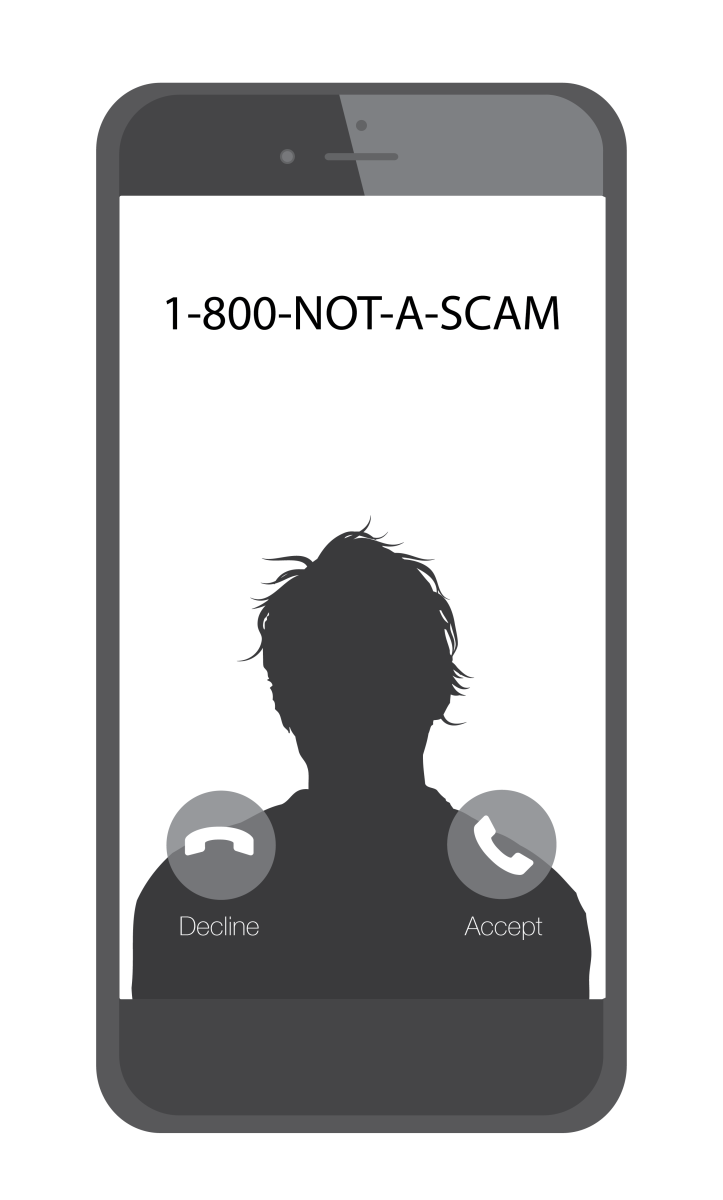
Mikhail Vasquez
1-800-NOT-A-SCAM
In addition to email phishing, scammers are beginning to use more advanced methods to trick students at NC State. This commonly involves using a spoofed phone number, meaning the scammer tricks the receiving phone into thinking the call is coming from a different number.
Sgt. Tim Hammonds from the NC State University Police Department described the nature of the crimes.
“There has been an increase in number nationwide of calls from people claiming to be part of government agencies like the IRS, immigrations services, even the universities,” Hammonds said. “Some say that there has been a federal student tax that hasn’t been paid; they claim that a person will be arrested or deported if they don’t pay a certain amount immediately. They will usually ask for payment through MoneyGram or gift cards. There are so many avenues and opportunities for the caller.”
Because many of these phone scammers target those with student loans, a handful of NC State students have fallen prey to their tactics.
“We had a person who felt so intimidated that they stayed on the phone all of the way to the bank,” Hammonds said.
Although scammers have previously requested tax information or direct payment from students, more commonly scammers have demanded a student’s Unity password.
Marc Hoit, vice chancellor of the Office of Information Technology, reassured that a campus organization would never request such information from any student.
“On campus, nobody ever asks for a password ever because they cannot use it,” Hoit said. “The only thing that they can do is disable your old one and give you a new one. There is never a use to give your password to someone.”
Outside of campus, the IRS has begun instituting new security protocols to protect the public from phone scams.
“The IRS is now putting PIN numbers on your account,” Hoit said. “You can put a pin number on your account so that you cannot submit your tax return until you have that PIN number.”
Mardecia Bell, director of the Office of Information Technology, advised that students first record the number of a phone call and then search online for the number of the supposed caller. Although OIT has not been able to directly address crimes committed against students via phone, Bell has listed methods for students to mitigate identity theft all together.
“There’s not much that we can do with that because they have been calling the students’ personal phones,” Bell said. “If they are asking for your credentials or social security number, you need to take down their information and then call them back. With emails one of the ways that you can tell if it’s fake is to hover over the link. You can see that it’s not from NC State.”
For victims of phone call scams, Hammonds advised the following: “If someone is a victim, we [University Police] want to aid in investigating that. Students should report it to their local law enforcement agency. Awareness is the best way for us to combat this.”
If you believe you have been contacted by a fraudulent caller demanding payment or personal information, contact the IRS at (800) 829-1040 and the NC State Office of Scholarships and Financial Aid at (919) 515-8422. To report a scam, contact the FTC.